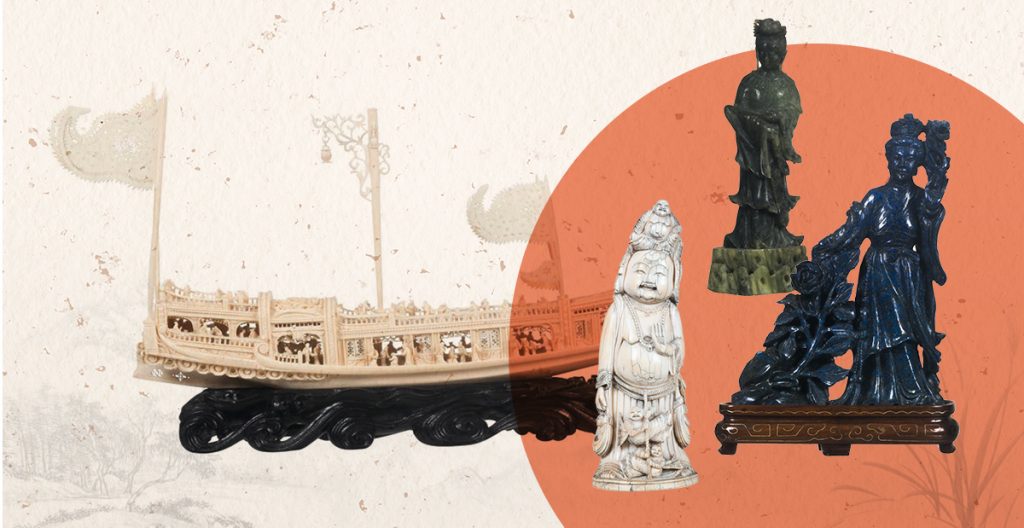12 Chinese Values that Can Make Your Life Better

In Chinese culture, it is said there are 12 core values that are cherished the most and have been around since ancient times. These values continue to serve as a guide for us in today’s world.
Here are the Chinese values:
1. Harmony
Cantonese: Wo
Mandarin: He
Harmony is the proper and balanced coordination between two parties. When this happens, harmony also extends to the rest of the people around you. To achieve harmony, people must value mutual respect, cooperation, coexistence, and win-win development.
2. Righteousness
Cantonese: Yi
Mandarin: Yi
Guan Yu, the red-faced God of Justice in Chinese tradition, took an oath of fraternity with his sworn brothers, Liu Bei and Zhang Fei, in a ceremony in the Peach Garden before he was deified. Nowadays, people don’t take vows of loyalty and solidarity but are consistently present and of service in each others’ lives.

3. Loyalty
Cantonese: Zung
Mandarin: Zhong
A famous Song dynasty general, Yue Fei, had four Chinese characters, jin zhong bao guo, tattooed on his back. It meant to “be totally devoted to the country.” In addition, loyalty means faithfulness to the people in your life.
4. Frugality
Cantonese: Gim
Mandarin: Jian
There’s value to be found in not being wasteful — whether that’s with the food on your plate or the papers at your office. Your life will instantly become richer if you can be content and happy with the blessings you have.
5. Virtue
Cantonese: Deg
Mandarin: De
When a person has his or her own sets of virtues, they manifest in both action and in thought. By being virtuous, one demonstrates honesty, righteousness, nobility, and purity. If you believe in karma, those who live their lives with morality will also be rewarded in the afterlife.

6. Humility
Cantonese: Him
Mandarin: Qian
From the teachings of Chinese philosopher Confucius, humility can go a long way. Humble people often shrug off praises and compliments from others or at least accept them graciously.
7. Forbearance
Cantonese: Yen
Mandarin: Ren
Being able to tolerate life’s hardships with patience and resilience is one of the best ways to achieve your goals. Life will always have a set of challenges, but it’s important to stay strong, just like King Yue Goujian. Upon being released as a prisoner of war and returned to his territory, King Yue Goujian of the warring-states era gave up all luxuries. Every day he tasted the bitterness of the gall hanging over his bed of firewood just to remember the hardship and humiliation he had suffered.
8. Filial Piety
Cantonese: Hao
Mandarin: Xiao
Filial piety is one of the strongest traits of Chinese culture, especially during ancient times. It emphasizes respect and love for one’s elders and ancestors. Huang Xiang from the Eastern Han dynasty fanned his father’s pillow and bed during summer and warmed up the blanket during winter before his dad got into bed to ensure that his father would sleep comfortably.

9. Genuineness
Cantonese: Zen
Mandarin: Zhen
Genuineness or honesty is valuing the truth, authenticity, integrity, and credibility. Confucius also stressed this in his teachings. Honesty is very important in daily behavior and relationships. It’s important to be honest to one’s self and to others to create a just world.
10. Courtesy
Cantonese: Lei
Mandarin: Li
Courtesy refers to polite actions or speech towards others as a sign of appreciation and respect. The value emphasizes the importance of civility and thoughtfulness. A great example of this is the great scholar from the Eastern Han dynasty, Kong Rong, who gave his siblings a bigger share of pears even if their father meant to give him the biggest one.

11. Forgiveness
Cantonese: Xu
Mandarin: Shu
Forgiving people is important, but in some cases, it doesn’t mean you have to let them back in your life. It can, however, grant you grace. We are only human which makes us imperfect with a fair set of faults, failures, and shortcomings. From one of the Chinese four great classic novels, Journey to the West, the Tang dynasty Buddhist monk Xuanzang had to forgive his disciple and protector, the Monkey King, for causing a lot of trouble due to his childlike playfulness.
12. Benevolence
Cantonese: Qi
Mandarin: Ci
Benevolence is something that the world needs. It can be expressed in a random act of kindness or gift that would lift someone’s spirits up on a bad day. In Chinese mythology, Guanyin, the Goddess of Mercy, is admired for her benevolence to mankind as she is always present in taking humanity’s troubles and grievances upon herself.












